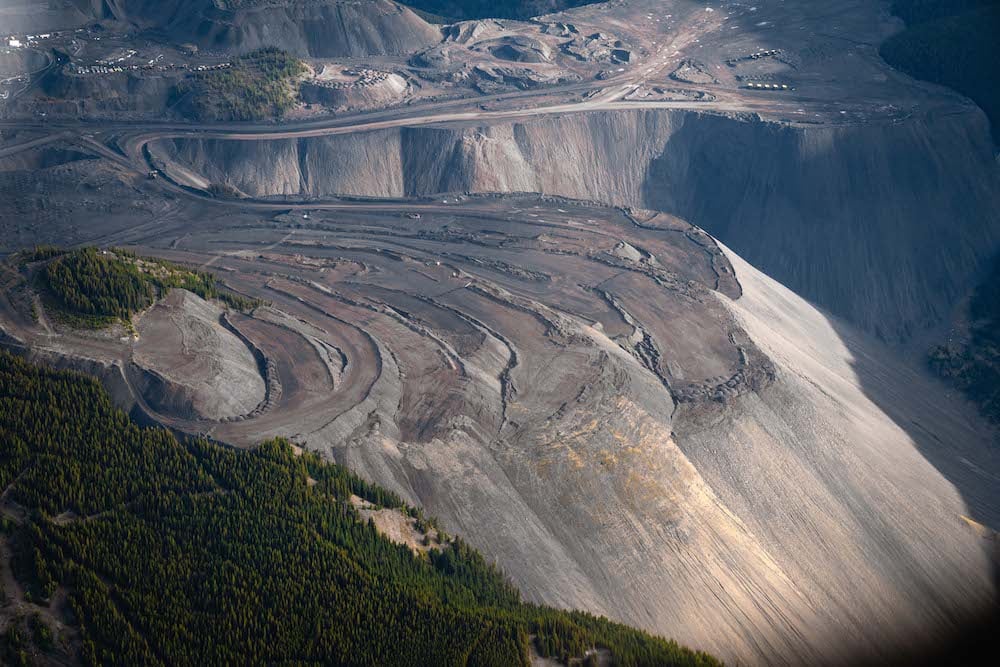We wait, wondering what could be the holdup.
In March of last year, facing intense public heat over its pro-mining push, the Kenney government created the Coal Policy Committee to “develop and lead a widespread and comprehensive public engagement to inform Alberta’s long-term approach to coal.”
It’s been over a month now since the Coal Policy Committee submitted its reports to the Alberta government about developing a new coal policy on the eastern side of the Canadian Rockies.
We wait for the government to release the committee’s “what we heard from Albertans” report.
We wait for the government to release and respond to the committee’s recommendations.
This wait underlines that coal in Alberta is about more than the future of an iconic Canadian landscape. It’s also about the quality of democracy.
Is the politics of coal in Alberta about consulting with the people and responding well to their concerns?
Or, is it instead about controlling the agenda in ways that ultimately silence or marginalize those concerns?
Alberta has never experienced a public outcry like the one after the Kenney government opened up the Rockies and foothills to coal exploration in June 2020. Albertans from all corners of the political spectrum, like Peter Finch’s character in the movie Network, threw open their windows and screamed: “I’m as mad as hell and I’m not gonna take this anymore.”
Tens of thousands of Albertans joined a Facebook group to oppose coal. Over three weeks last spring, more than 24,000 people told the government what they thought about coal. Their comments weren’t salutary. Public opinion polls have showed consistently, as ThinkHQ Public Affairs reported a year ago, that expanded coal mining “is decidedly unpopular with voters.”
Dr. Ron Wallace, chair of the committee established to consult with Albertans, told the media last fall that most of the submissions the committee received were “strongly opposed” to coal mining.
If, as seems likely, Wallace foreshadowed the conclusion of the committee’s engagement report, why is that report still being kept under wraps?
The politics of Jason Kenney’s United Conservative Party and the desire to control the political agenda, not the public interest, are the likely culprits.
We haven’t seen the engagement report yet because its message probably clashes profoundly with the positions of the premier, the minister of environment, the Department of Energy, and other key actors in the Kenney government. Those politicians and government officials, ones wanting to invite open-pit coal miners to southern Alberta, will fight not to release that engagement report until it best suits their interests.
Premier Kenney’s enthusiasm for coal was just affirmed by High River Mayor Craig Snodgrass. The mayor, a staunch opponent of coal mining, met in January to discuss coal with Premier Kenney, Energy Minister Sonya Savage and other officials. About that meeting, the mayor reported to High River Council that the premier “was very honest with me as to where he stood on that, as he says, he is full-on, an unapologetic supporter of the coal mining industry.”
“There’s no question,” Mayor Snodgrass added, that Kenney is “still 100 per cent in with supporting the coal mining companies.”
To Snodgrass, months of public opposition had done little to nothing to change the premier’s mind.
Then there’s the minister of environment and parks. Much of what comes from Minister Jason Nixon’s pen reads like it was written by the Coal Association of Canada. Take his December 2019 letter of support to Valory Resources, a company wanting an open-pit coal mine in the foothills west of Rocky Mountain House. With that letter he declared support for “efforts to streamline policy and processes to bring greater certainty and stability to our investment climate and make Alberta open for business.”
Minister Nixon’s letterhead was the only part of his letter suggesting he was an environment minister. There is no doubt he welcomes coal mining.
As for the Department of Energy, it constrained the Coal Policy Committee’s terms of reference by making it difficult for the committee to focus on water, land use, species at risk — the sorts of issues that most troubled Albertans.
Thankfully, committee chair Wallace informally broadened those terms of reference when he said the committee would “listen to a widest spectrum of people in Alberta” and their concerns. But, it’s naive to believe that pro-coal interests in the bureaucracy haven’t joined sympathetic politicians in cabinet and caucus to try to privilege the narrow view found in the official terms of reference, not the broader view Wallace outlined.
The situation we’re in the midst of now is a classic example of what Steven Lukes and others call the “second face of power.” This face is about controlling the agenda, about deciding what information will be considered and when, if ever, the public will see it. Voices that support the ideological or other beliefs of decision-makers are welcomed; challenging voices are marginalized.
Efforts to set the political agenda to favour coal and minimize democratic participation extend beyond ministries of energy and environment, and the premier’s office. Last June, the government agency Elections Alberta told the Facebook group called Protect Alberta’s Rockies and Headwaters it would need to jump through bureaucratic hoops to register as “a third party political advertiser” if it wanted to express itself democratically. At the same time, coal companies sponsored billboards and other types of advertising to promote their political “responsible mining” message with no such requirement.
The Facebook group wrote Elections Alberta last July to say what’s good for the goose should be good for the gander. It asked if Elections Alberta had raised pro-coal political advertising with these coal companies. Today, Elections Alberta still hasn’t answered that question. The Alberta Wilderness Association objected to this apparent double-standard last November. The only answer we received was that we’ll get an answer “in due course.” We’re still waiting.
And the campaigning coal interests still are not registered with Elections Alberta as third-party political advertisers.
For nearly two years now, coal in Alberta has been an issue about both the future of an iconic landscape and the quality of the province’s democracy.
The public opposition has had its moments. Opposition voices flowered. They succeeded in making the Kenney government backtrack on rescinding the long-established coal policy. They succeeded too in securing a public consultation about the future of coal.
But, that opposition’s ultimate goal — slamming the door on new coal mining anywhere along Alberta’s eastern slopes — faces determined opposition from key actors in the UCP government.
These actors control the agenda now and, if they prevail against the public’s wishes, coal will be another sad milestone in the deterioration of democratic politics in Premier Kenney’s Alberta. ![]()
Read more: Energy, Politics, Environment
















Tyee Commenting Guidelines
Comments that violate guidelines risk being deleted, and violations may result in a temporary or permanent user ban. Maintain the spirit of good conversation to stay in the discussion.
*Please note The Tyee is not a forum for spreading misinformation about COVID-19, denying its existence or minimizing its risk to public health.
Do:
Do not: